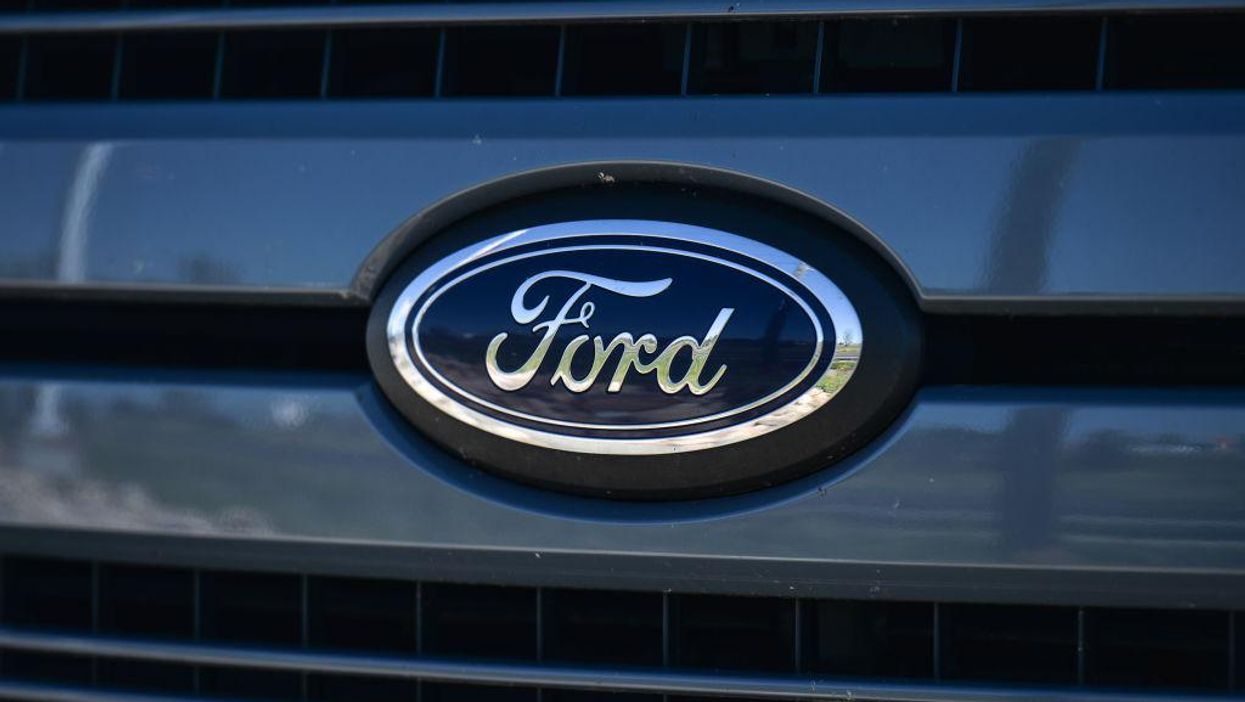
Artur Widak/NurPhoto via Getty Images

Despite selling its own cars and trucks at a successful clip, major U.S. automaker Ford reported significant revenue losses this week thanks to a risky investment into an electric vehicle company: Rivian.
In a press release issued this week, Ford reported $34.5 billion in revenue for the first quarter of 2022, marking a 5% decline relative to the same period last year and a net loss of $3.1 billion.
But had it not been for an ill-fated early investment in Rivian, a once-promising "electric adventure vehicle" startup, the Detroit automaker said its earnings from January to March of 2022 would have been $2.3 billion.
"A net loss of $3.1 billion was primarily attributable to a mark-to-market loss of $5.4 billion on the company’s investment in Rivian," the company said in the press release.
Ford, along with Amazon, was an early backer of Rivian, which was founded in 2009 and went public last year. The two companies even announced plans to develop an electric pickup truck together; however, those plans were later canceled. Nevertheless, Ford retained its significant investments in the company.
Starting in April 2019, Ford invested $1.2 billion in the company and currently holds a 12% stake. For a while, the funding seemed to be paying off. After the initial public offering, Ford expected an $8.2 billion gain on its investment. But Rivian's stock has been on a roller-coaster ride ever since, and now reality is setting in for investors, including Amazon, which took a $7.6 billion loss on its Rivian stake.
Yet in the face of significant revenue decline over EV volatility, Ford's CEO Jim Farley restated his commitment to going electric in an earnings call Wednesday, though he claimed Ford would take a different approach than competitors.
"I want to make this very clear: Some companies seem to be pursuing a strategy of trying to match model-wise volume with eight or nine top hats — that's not a winning plan in our view," Farley said, according to Yahoo News. The statement was an apparent dig at General Motors' EV strategy.
"As we move forward, our EV designs will be progressive and they're going to be aimed at bringing new customers to Ford and Lincoln. They will not be electric versions of our existing lineup," he explained.
Ford is currently aiming to sell 2 million EVs annually by 2026 and is targeting 50% EV sales by 2030, as required by an executive order signed by President Joe Biden in August 2021.
Both Ford and Rivian also blamed continued supply chain issues for their first-quarter difficulties. Rivian, in particular, appeared to suffer dramatically from the chip shortage, as investors became wary of any electric vehicle company not named Tesla, CNN Business reported.
Ford, a much more established company — by about 120 years — has fared better in the supply chain storm. The automaker reportedly has some 53,000 vehicles almost completed except for components affected by the chip shortage.